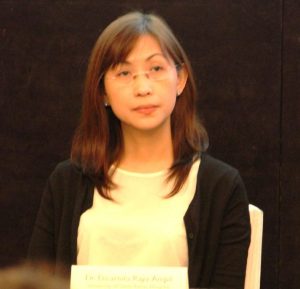NEWS AND UPDATES
Researchers identify inexpensive, ‘no-drug’ therapies for dementia patients

In taking care of people with dementia, family members and workers in the Philippines found to practice non-pharmacological (no drugs) therapies at home such as reminiscence and music, according to Dr. Encarnita Raya-Ampil of the University of Santo Tomas during the Philippine Council for Health Research and Development (PCHRD) 32nd Anniversary.
About 35.6 million people suffer from dementia worldwide with 7.7 million new cases every year based on the World Health Organization (WHO) report. Although dementia is not curable, medication and non-pharmacological therapies are necessary to improve the quality of life of dementia patients. Yet, with poverty and expensive cost of dementia treatments, Dr. Ampil said many patients in the country could not afford such treatments.
Exploring non-pharmacological therapies for dementia patients, Dr. Ampil and her co-researchers initially found low-cost interventions that could be administered at home: reminiscence therapy and music therapy. In reminiscence therapy, dementia patients are encouraged to remember by discussing past activities, events, and life experiences using photographs, household and other familiar items. Alternatively, music therapy allows patients to listen to familiar music, play instruments, and write songs.
“These simple non-pharmacological therapies such as reminiscence and music can be standardized so that people at home can easily give them to people with dementia,” advised Dr. Ampil.
Dementia is a syndrome in which memory, thinking, behaviour, and the ability to perform everyday activities begin to deteriorate, affecting mainly older people.




